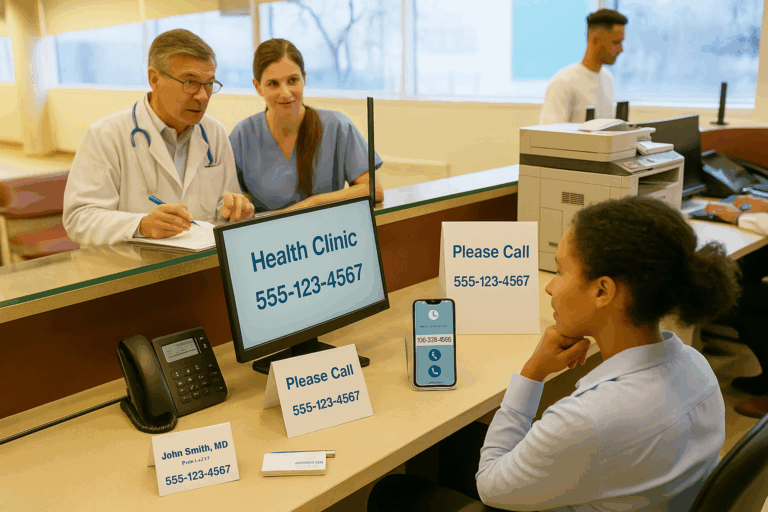Medical practices safeguard various items, including medications, medical supplies, office essentials, billing records, and patient data. While ensuring adequate space and secure handling for all these materials is essential, protected health information (PHI) demands especially stringent safeguards. Failure to properly store PHI can result in costly HIPAA fines and penalties.
According to the U.S. Department of Health and Human Services (HHS), utilizing HIPAA-compliant cloud storage for patient data is more secure than paper storage or a local server. Many industries, including healthcare, employ cloud computing. Roughly 94 percent of all companies worldwide use cloud computing, and 81 percent of healthcare leaders have adopted the cloud in most or all parts of their business.
Many healthcare enterprises employ cloud computing for electronic medical records (EMRs), mobile health (mHealth), patient portals, data storage and more. A survey by HIMSS found that an estimated 39 percent of healthcare information technology workloads are currently deployed in the cloud. A reported 35 percent of healthcare organizations hold more than 50 percent of their data or infrastructure in the cloud.
Why is cloud computing used so widely by businesses of all kinds? Its big benefit is its scalability. It enables enterprises to easily and cost-effectively scale their solutions to fit organizational needs and goals.
Other advantages include convenience, reliability and disaster recovery. Through cloud technology, healthcare practices of all sizes can prevent downtime and subsequent data loss through disaster recovery and backup capabilities.
Perhaps the biggest perks of cloud-based technology for healthcare providers are improved access to data and reduced operational costs. Cutting costs is imperative for most healthcare practices, and a report from the AMGA Medical Group Operations and Finance Survey shows that operational costs for medical groups are outpacing revenue gains.
Immediate Access to Patient Data
Cloud computing enhances healthcare providers’ capability to access patient data remotely and share vital information on preventative care, medication adherence and post-hospitalization care plans with patients. Cloud technology providers have on-demand access to computing and extensive storage facilities to access patient records remotely, allowing them to connect more easily with other clinicians and patients. This enables collaboration among providers and reduces delays in patient treatment.
With cloud-based technology, doctors, nurses and other healthcare providers can easily access detailed patient data from different sources. This eliminates the need for massive networks and complex security protocols. Cloud computing also gives them remote access to patient data in an emergency.
As a cloud-based platform, the HIPAA-compliant RingRx phone system built for healthcare allows for cross-site integration and collaboration and the capability to create more seamless alignment for a multi-location enterprise. We integrate mobility deeply into our service, promoting quick access to patient data and making communication between providers, staff members and patients simpler and less time-consuming.
Condensed Operational Costs
Cloud-based technology and services help medical practices cut costs by reducing or eliminating the need to invest in IT equipment and storage space. By employing cloud-based technology, healthcare providers negate the need for a large IT staff to implement or maintain on-premise software and equipment, a cost savings that can be applied to solutions to maintain high-quality patient care.
Reducing downtime avoids revenue loss and diminishes patient trust. Downtime can eclipse $5 million an hour for higher-risk enterprises such as healthcare, not including potential fines or penalties. A report by the Ponemon Institute tallied the average amount per healthcare outage at $690,000.
At RingRx, our platform can be deployed as a fully hosted cloud PBX or as a private cloud installation using your chosen hosting method, all based on the size and efficiency of your enterprise’s internal resources for managing IT infrastructure. Utilizing a single, web-based system, you can deploy across your whole enterprise gives you a communications framework that mitigates costly downtime.
Equip Your Healthcare Practice with RingRx to Realize the Perks of Cloud-based Communication
RingRx designed its next-generation cloud communications platform to simplify and improve patient-staff communications for physicians, therapists and healthcare business associates in large and small, urban and rural communities. Our platform is hosted on secure cloud-based servers, storing all messages and saved files received through your RingRx phone system.
Want more information on how cloud computing can help your medical practice cut costs while keeping PHI secure? Check out our white paper, “The Benefits of a Cloud-Based, VoIP Telecommunications System for Healthcare Providers.”




